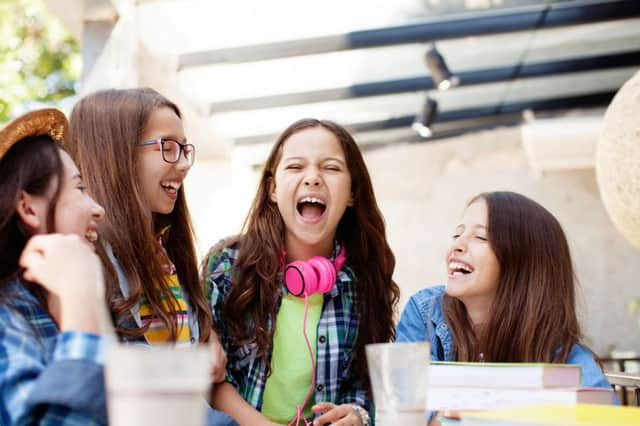How to get a more confident teen


The standard view of a teenager is often grumpy and unhappy with a low opinion of themselves and a lack of confidence.
But new research suggests that while the grumpiness may be unavoidable, the majority of teens feel good about themselves.
Advertisement
Hide AdAdvertisement
Hide AdA study of 1,000 11-17-year-olds found that 72 per cent feel positive about themselves, with seven out of 10 considering themselves healthy because they think they’re a healthy weight, eat a balanced diet and don’t smoke.
In addition, British teenagers are proud of who they are as a person, valuing their friendliness, kindness and trustworthiness and honesty.
Clinical psychologist Professor Tanya Byron, who has presented TV shows on parenting and behaviour, as well as leading an independent review into the effects of the internet and video games on children, says: “Despite the prevailing public perception that teenagers today are an unhappy generation, most teens manage to hold on to a positive view of themselves, despite the challenges of the adolescent years.”
However, the Boots study also showed the majority of teens want to have more confidence, and advice on how to get it - although girls are more likely to ask for advice than boys.
Advertisement
Hide AdAdvertisement
Hide Ad“We need to empower our teens to develop the critical thinking skills needed to develop confidence and self-belief built around values and ideologies, rather than external factors such as looks and body shape,” stresses Byron.
Indeed, the research found that 41 per cent of teenage girls worry about what their friends say about them behind their back, and only 19 per cent of teens would describe their social media profile as a true reflection of who they are and how they feel.
“Despite showing a positive sense of self and high levels of self-awareness about health and wellbeing, unsurprisingly, when we look at threats to feeling good, issues relating to confidence and self-image come out very strongly,” says Byron.
“It’s important for all of us to encourage teens to spend time with their friends in the real world - to find a balance between the image they curate online and what they experience in the real world with their real friends.”
Advertisement
Hide AdAdvertisement
Hide AdIt could also help to point out real, positive role models, as opposed to the airbrushed, skinny celebrities teenagers see on TV and in magazines.
“Positive role models that portray inner strength and values are important for our teens to see,” stresses Byron.
“By understanding what our teens are experiencing at both a physical and psychological level and, most importantly, listening to them as they explain their thoughts and feelings, we can more effectively support our teenagers to be the best version of themselves in terms of their self-belief, health and wellbeing.”